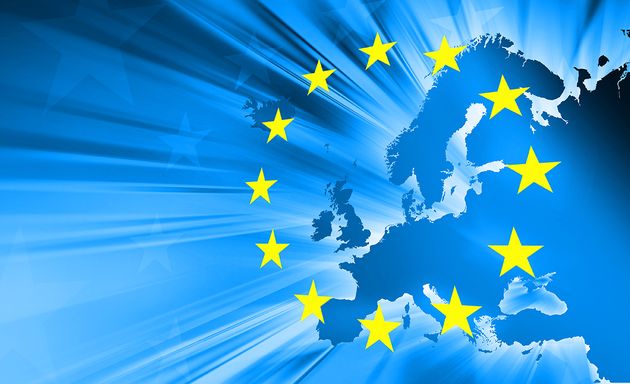The European Commission launched the Online Citizens’ Consultation on May 9th. It is “addressed to all Europeans, asking them what direction they want the European Union to take in the future”.
 Image: European Dignity Watch
Image: European Dignity Watch
May 9th marked Europe Day, an annual celebration of the anniversary of the Schuman Declaration, presented by the French foreign minister in 1950. The Declaration aimed at bringing peace and unity in Europe and making war between the states “not merely unthinkable, but materially impossible“. Robert Schuman famously wrote “Europe will not be made all at once, or according to a single plan. It will be built through concrete achievements which first create a de facto solidarity”.
The European Union has undoubtedly provided important benefits for European citizens and continues to do so. However, as we have pointed out in several of our articles, there are indications that the fundamental freedoms of the citizens are increasingly vulnerable.
It is common practice today for EU institutions to approve or condemn actions Member States take to preserve the well-being of marriage and the family, to decide what place religion should have in their societies, and theways in which parents choose to educate their children.
Today in Europe, all of these fundamental rights – marriage, family, and religion – are facing serious challenges. One of the best indicators of a just and free society is whether or not rights and freedoms in each of these areas are respected.
A truly democratic Europe must ensure that its institutions listen to the voices of its citizens in society’s core areas of freedom, family, and life. Therefore, we highly encourage you to take opportunities to engage with the European institutions and make your voice heard!
THE FUTURE OF EUROPE: ONLINE CITIZENS’ CONSULTATION LAUNCHED BY THE EUROPEAN COMMISSION
One way you can express your views on the topics that concern you is by participating in the Online Citizens’ Consultation launched on May 9th by the European Commission (EC). It is “addressed to all Europeans, asking them what direction they want the European Union to take in the future”.
Jean-Claude Junker, the President of the European Commission stated: “With the European elections around the corner, it is time to decide what the European Union at 27 should be. Whatever happens, it must be a Europe built by Europeans. The survey we are launching today puts the question to all Europeans: What future do we want for ourselves, for our children and for our Union? Now is the time for Europeans to make their voices heard, loud and clear, on the issues that concern them and what they want their leaders to do about them”.
The 12-questionsurvey prepared by a panel of 96 Europeans intends to be a “unique exercise in participative democracy” where “citizens are at the heart of the conversation on the Future of Europe”.
The White Paper on the Future of Europe was presented in March 2017, and the online consultation launched in May 2018 will complement it.
This is your opportunityto be heard “loud and clear” and we encourage you to take advantage of it!
CITIZENS’ DIALOGUES IN ALL EU MEMBER STATES
In addition to the online consultation, national governments in all Member States are organising Citizens’ Dialogues on the Future of Europe.
They are “public debates with European Commissioners and other EU decision-makers, such as members of the European Parliament, national, regional and local politicians”. According to the EC, these dialogues “are instrumental in bringing new voices into the debate on the future of the Union”.
These events take place in different cities across the EU, and citizens can attend them for free as well as follow them online.
One of the motivations behind organising such public debates is the upcoming 2019 European elections, which “should allow citizens to decide on what sort of Europe they want for the future, and a well-informed debate is one key condition for a high turn-out and a further enhanced legitimacy and accountability of European institutions”.
So far, 129 dialogues in more than 80 towns have been organised. The EC plans to be involved in 500 more such debates before May 2019. Follow this page to find out more about the upcoming Citizens, Dialogues events in your area and attend one!
PROMOTING A BLANCED VISION OF HUMAN RIGHTS REQUIRES ENGAGEMENT
In addition to the above, there are also other ways to get involved in European policy-making. Several tools can be used by citizens, such as European Citizens’ Initiatives, petitioning the European Parliament, and formal complaints to give feedback. You can find more information about these tools here.
Whether the European institutions actually take the voices of citizens seriously or not is the topic of another debate. However, advancing a balanced vision of human rights for all members of society is also the responsibility of the citizens.
Therefore, we must be willing to become more engaged and use all available opportunities speak up and promote our values.
Roxana Stanciu, Executive Director of European Dignity Watch, based in Brussels. Learn more about how this organisation informs, educates, and equips stakeholders in Europe to make a difference in public life, defending freedom, family, and life; visit EDW's website.

Las opiniones vertidas por nuestros colaboradores se realizan a nivel personal, pudiendo coincidir o no con la postura de la dirección de Protestante Digital.
Si quieres comentar o